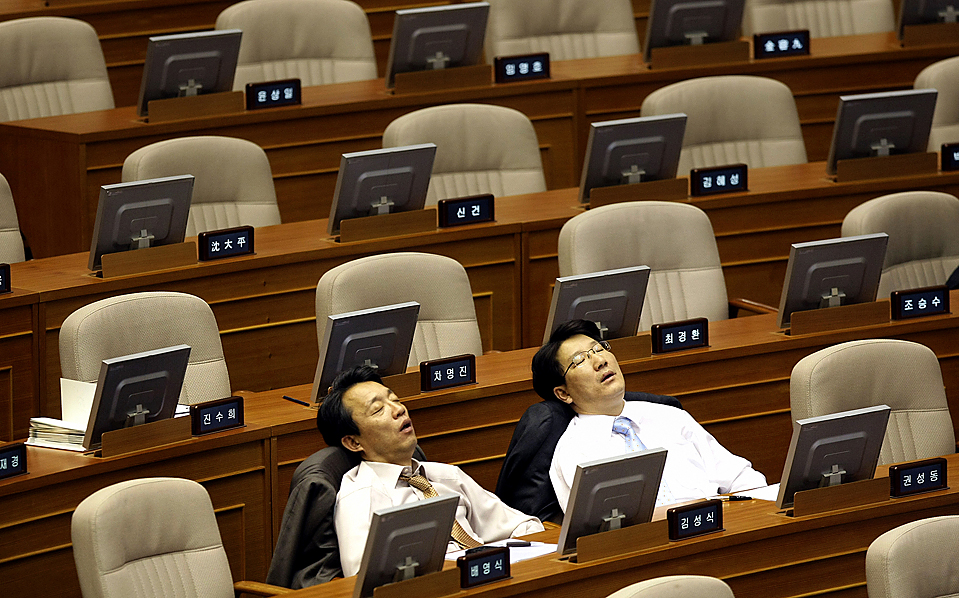Paul Mason, author of Postcapitalism, believes the day might soon come when technology frees us from most forms of labor and one of our dominant economic systems. Corporations can be people-less automatons, driverless-car fleets can own themselves and work can melt into play. The rise of the machines and end of scarcity will depend, he believes, on whether policy and mindset make way for the future. The work ethic as we know it would be among the first casualties. “A low-work society is only a dystopia if the social system is geared to distributing rewards via work,” Mason writes in a new Guardian essay.
AI will likely take longer than many believe in assuming so many tasks, and that’s not just because of political and personal will. But Mason’s scenario is possible in the longer run. In that new order, capitalism would have to be seriously recalibrated, becoming perhaps a piece of a bricolage of systems operating within states.
The opening:
When researchers Frey and Osborne predicted in 2013 that 47% of US jobs were susceptible to automation by 2050, they set off a wave of dystopian concern. But the key word is “susceptible”.
The automation revolution is possible, but without a radical change in the social conventions surrounding work it will not happen. The real dystopia is that, fearing the mass unemployment and psychological aimlessness it might bring, we stall the third industrial revolution. Instead we end up creating millions of low skilled jobs that do not need to exist.
The solution is to begin to de-link work from wages. You can see the beginnings of the separation on any business flight. Men and women hunched over laptops and tablets, elbows so close that if it were a factory it would be closed on health and safety grounds.
But it is a factory, and they are working – some of the time. They flip from spreadsheet to a movie to email to solitaire: nobody sets a timer – unless in one of the time-hoarding professions like law. At the high skill end of the workforce we increasingly work to targets, not time.
But to properly unleash the automation revolution we will probably need a combination of a universal basic income, paid out of taxation, and an aggressive reduction of the official working day.•
Tags: Paul Mason

